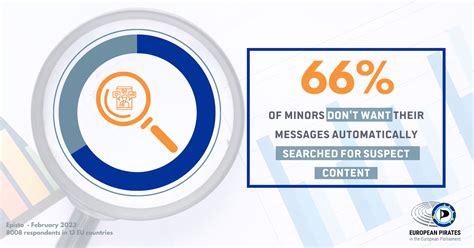The upcoming vote by the EU Council on the chat scanning proposal has ignited a fiery debate among technology enthusiasts, privacy advocates, and ordinary citizens alike. The measure, designed to curb criminal activities online, especially those involving child exploitation, proposes to monitor private communications on public platforms. While the intent behind the legislation is noble, its execution has left many concerned about the long-term implications on privacy and digital rights. To dive into this issue, we must examine the varied perspectives and explore potential outcomes of such a measure.
Firstly, the concern is that this proposal marks a significant step toward a mass surveillance state. Traditional end-to-end encryption, which ensures that only the communicating users can read the messages, would be undermined. Critics argue that this makes all communications vulnerable to cyberattacks, not just criminal activities. The very foundation of digital privacy rests on robust encryption methods, which, once weakened, could expose sensitive data to a multitude of risks.
Proponents of self-hosting and encryption argue that these are viable ways to circumvent invasive scanning. As one user mentioned, self-hosting a standard XMPP server for their family is a practical approach. However, the efficacy of such solutions is debatable on a larger scale. Casual users are unlikely to take such steps, either due to technical barriers or a lack of awareness. Moreover, the rise of a broader surveillance infrastructure, embedded within operating systems, might neutralize even these countermeasures if implemented on a widespread scale.
Contrary to the dire predictions by some technologists, others argue that any efficient digital surveillance system in the EU would not materialize overnight. Taking Germany as an example, administrative digitization still lags, with processes often requiring physical presence. During the pandemic, there were brief moments of realization that digitalization could work, but old habits die hard. This resistance to change suggests that even if such a drastic system were proposed, its implementation might face considerable delays and obstacles.
Moreover, the current state of transaction technology in the EU, particularly in Germany, paints a picture of a region still grappling with modern digital systems. Many locals and tourists alike have experienced the inconvenience of being unable to use debit or credit cards at numerous establishments. This juxtaposition of archaic infrastructure with the proposed advanced surveillance points to a significant gap between digital aspirations and ground realities.
One of the loudest criticisms is the potential for abuse and the chilling effect such surveillance would have on free speech and personal communications. The fear is that with a digital ID system acting as a choke point, citizens could face unprecedented scrutiny, making it harder for them to dissent or organize against governmental actions. As one commenter pointed out, even with the threat of terror, mandating widespread surveillance would only infringe on the liberties of ordinary people without necessarily deterring criminals, who would likely find other encrypted avenues for communication.
Finally, the issue of false positives cannot be overlooked. Even with an extraordinarily low error rate, the sheer volume of communication would result in thousands of innocent Europeans being flagged daily. The resources required to manage this effectively would be immense, and the psychological toll on both the falsely accused and the moderators would be significant. This problem underlines the need for a balanced approach that does not disproportionately compromise privacy while striving to achieve security.
In conclusion, while the EU Council’s proposal aims to address critical issues of online safety and crime prevention, the implications for privacy and individual freedoms are too significant to overlook. The debate illustrates the delicate balance between maintaining security and upholding the rights intrinsic to democratic societies. As we edge closer to the vote, it’s imperative that lawmakers consider not just the immediate benefits but the long-term ramifications of such sweeping surveillance measures.


Leave a Reply